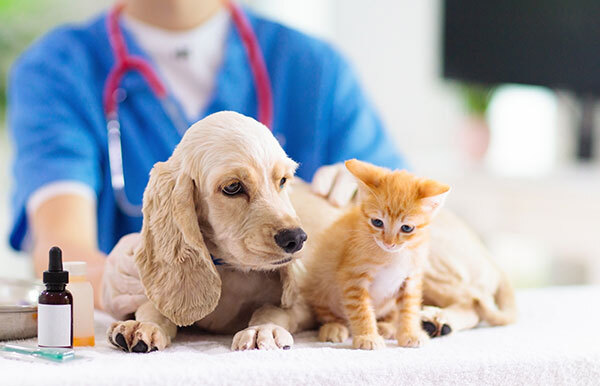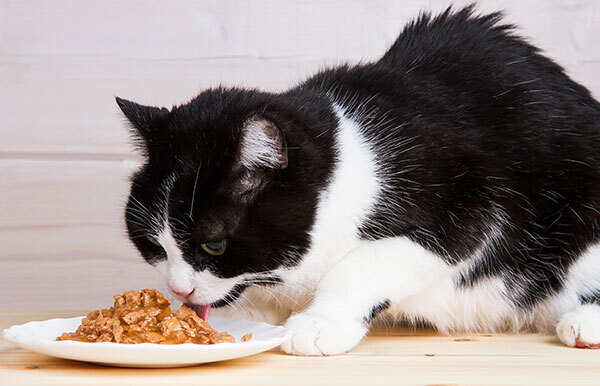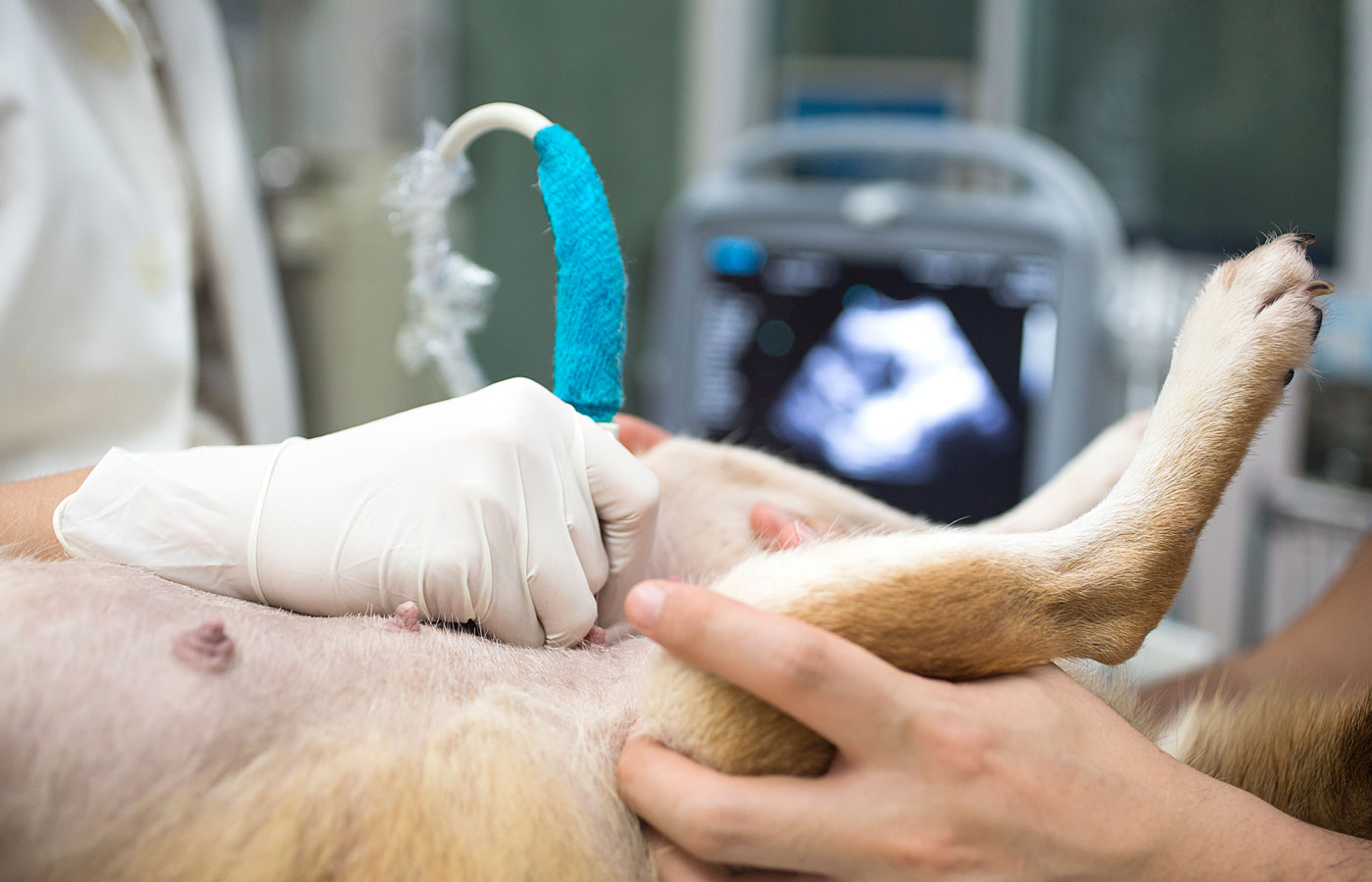Customizable Physical Exams

In-person appointments
The majority of our appointments occur in-hospital, with the owner present. This appointment type works well if you feel most comfortable speaking face-to-face with our veterinary team to ensure you completely understand your pet’s care.
Curbside appointments
If you do not wish to come into our hospital, but still want to be close during your pet’s appointment, curbside visits are a convenient option. When you arrive at our facility, you will call us from the parking lot, and a team member will call you back to gather important information and escort your pet inside. We will communicate via phone throughout your pet’s visit and bring them back to you when the appointment is completed.
Extended appointments
As Austin’s only Fear Free Certified Practice, we take your pet’s mental health seriously, and we do everything we can to prevent undue fear, anxiety, and stress. We understand that some pets become anxious or fearful in unfamiliar places, and we offer extended appointments so we can go slowly and take our time with these pets.
Backyard appointments
Whether you prefer fresh air, or your pet dislikes traditional exam tables, outside appointments offer a more relaxed atmosphere. Our backyard “exam room” allows us to conduct a complete appointment and thorough physical exam in the beautiful Texas outdoors.
Visual appointments
Some pets experience heightened anxiety at the veterinary hospital, and are uncomfortable with any physical contact. In some situations, we can conduct a visual exam of your pet, with minimal to no contact, to provide the veterinary care they need.
Telemedicine appointments
Virtual appointments allow you to provide important care for your pet from the comfort of your home, and are ideal for minor concerns, behavioral issues, and recheck appointments. Contact our team to see if your pet’s condition can be addressed with a convenient telemedicine appointment.
Preventative Care

Wellness exams
Routine wellness exams form the foundation of your pet’s preventive care during each life stage. Puppies and kittens require several visits to evaluate their development, boost their immunity, address training issues, and ensure proper nutrition. As an adult, your pet should be evaluated annually to maintain good health. During each appointment, we will perform a thorough physical exam to assess their overall health, including their weight and body condition, oral health, and heart and respiratory function. Once your pet reaches 7 years of age, or “senior status,” they should be evaluated every six months. Older pets have a higher risk of developing a variety of disease conditions, including diabetes, kidney failure, and heart disease. More frequent exams allow us to diagnose disease conditions earlier, when treatment can be more effective.
Vaccinations
Vaccinations are critical to protect your pet from a variety of infectious diseases, many which can be deadly. We administer a combination of core and optional, or risk-based, vaccines. Core vaccines are those every pet receives, because there is a high likelihood of disease exposure, or because the pathogen causes severe disease, such as with rabies. Risk-based vaccines are administered to pets whose lifestyle places them at a moderate or high risk of disease exposure. We will assess your pet’s lifestyle and risk status to determine which vaccinations they need.
Puppies and kittens receive a series of vaccinations to help them develop a strong immune system. This series generally begins around 6 weeks of age, with boosters given every three to four weeks until 16 weeks of age. Adult pets require regular booster vaccinations every one to three years. Our veterinary team will partner with you to determine the best schedule for your pet.
Blood work
Although we perform a thorough external physical exam during each wellness appointment, many diseases cause no obvious external signs, especially during the early stages. Routine blood work is like an internal physical exam for your pet, because it allows us to evaluate the function of various organs and systems. Routine blood work that we may recommend includes:
- Complete blood count (CBC) — A CBC evaluates your pet’s red blood cells, white blood cells, and platelets. Abnormalities can indicate infection, anemia, and blood clotting problems.
- Chemistry panel — A blood chemistry panel assesses your pet’s organ function, including their liver and kidneys.
- Parasite screening — Dogs should be screened annually for heartworm disease and tick-borne diseases, including Lyme disease and ehrlichiosis.
As pets age, additional tests, such as more specific kidney function and thyroid testing, may also be recommended.
Parasite prevention
In addition to being a nuisance, many pet parasites can transmit serious diseases. Parasite prevention is a critical part of your pet’s preventive care plan. Comprehensive parasite prevention includes protection from:
- Fleas — With each bite, fleas ingest blood and leave behind irritating saliva. Only a few flea bites can lead to skin problems, allergies, and tapeworm infections, while a severe infestation can cause anemia in small pets.
- Ticks — Ticks can transmit a number of diseases, including Lyme disease, ehrlichiosis, and anaplasmosis.
- Heartworm disease — Heartworms are transmitted by mosquitoes, and cause life-threatening heart and lung disease.
- Intestinal parasites — Pets can be exposed to a number of intestinal parasites, such as roundworms, hookworms, whipworms, Giardia, and coccidia, in their local environment.
Mild Texas winters mean that parasites have no off-season, and we recommend year-round flea, tick, intestinal parasite, and heartworm prevention for all pets. Many products protect against multiple parasites, and our veterinary team can help you decide which product combination is best for your pet.
Surgery

- Soft tissue surgery
- Wound repair
- Spay and neuter surgeries
- Dental procedures
- Foreign body removal
- Splenectomy
If your pet requires a more advanced surgery, we can schedule a board-certified mobile surgeon to perform the procedure in our hospital. That way, your pet can benefit from specialty expertise in a familiar setting.
Anesthesia
Some procedures require general anesthesia so your pet will not experience pain or anxiety. We understand that many pet owners hesitate to have their pets placed under anesthesia. While modern anesthesia is generally quite safe, we take extra steps to ensure your pet’s safety, including:
- A thorough pre-surgical physical exam
- Pre-anesthetic blood work
- Individualized anesthetic protocol
- Close monitoring with state-of-the-art equipment
- A dedicated veterinary technician to continually assess your pet’s vital signs
For some minor procedures, we can use local anesthesia instead of general anesthesia. In these situations, medication can be used to block feeling and pain while a biopsy is performed or a small mass removed. A sedative is often used as well to help your pet relax and remain calm. We assess each patient on a case by case basis, and tailor the safest, most effective anesthetic plan for their surgery.
Dental procedures
With more than 80% of dogs and 70% of cats affected by dental disease by the age of 3, dental disease is the most common medical problem diagnosed in pets. Imagine how quickly your dental health would deteriorate if you never brushed your teeth or visited the dentist!
Dental disease signs to watch for include:
- Tartar build-up on the teeth
- Red, swollen, or bleeding gums
- Bad breath
- Excessive drooling
- Changes in eating or chewing habits
- Pawing at the face
- Loose teeth
- Depression or irritability
Left untreated, dental disease can cause irreversible periodontal disease, tooth loss, chronic pain, and bone deterioration. Oral bacteria can also travel throughout your pet’s body and cause serious infections in their liver, kidneys, lungs, or heart.
We assess your pet’s dental health as part of every wellness exam, and will advise you on an appropriate preventive or treatment plan. A combination of daily tooth brushing and annual dental cleanings is typically the best way to ensure your pet’s dental health. If we diagnose advanced dental disease, surgical procedures, such as dental extractions, may be required.
Acupuncture

- Acute and chronic pain
- Arthritis
- IVDD
- Anxiety
- Skin conditions
- Gastrointestinal disease
- Neurological disorders
It can also help with side effects of conditions such as:
- Cancer treatment
- Diabetes
- Pancreatitis
- Cushing’s and Addison’s disease
- Kidney or liver disease
Additionally, acupuncture aids in neurological recovery, immune system support, and senior pet care. Even if acupuncture cannot cure a condition, it may make it more tolerable.
Schedule a consultation with our trained acupuncturist, Dr. Sabo, to discuss how your pet may benefit from this treatment.
Nutrition

During your pet’s nutrition consultation, Dr. McCoy will discuss various diet options, including dry kibble, canned food, raw diets, freeze-dried foods, and home-cooked diets. Many options are available to meet each pet’s unique needs. Whether you want to keep your pet in excellent health, or your pet has a disease condition that requires a specialized diet, Dr. McCoy can help you find the perfect option for them. She can also recommend veterinary-approved supplements to support your pet’s health.
For dedicated pet owners who wish to provide home-cooked meals for their pet, Dr. McCoy’s diet plans are customized to fit your pet’s individual health needs.
Pocket Pets – No Reptiles No Birds

Do you know if your pet should be spayed or neutered? Do you know if any vaccinations are recommended to help maintain good health? Do you have questions about proper nutrition, cage cleaning, grooming, or any other aspects of care and husbandry?
Dr. Alexander is well trained in the care and husbandry of small mammals and can give you the information you need to keep your “pocket pet” looking and feeling great.
Why not call to schedule a wellness visit? We can perform a physical examination, answer any questions you may have about your pet, and discuss whether any changes in diet or at-home care are recommended to help ensure the health and longevity of your pet.
Dermatology

We can often diagnose a skin problem by simply examining your pet. Some dermatologic diseases or conditions do require additional diagnostic procedures to ensure a correct diagnosis. Depending on your pet’s symptoms and the results of our physical exam, we may run blood work or perform a urinalysis, skin scraping, or biopsies.
Contact us if you notice your dog or cat scratching excessively or if he or she develops any bare patches, scabs, scaling, redness, inflammation, lumps, or bumps.
Cardiology

Heart disease can lead to congestive heart failure (CHF), which occurs when the heart can no longer pump blood effectively. If an animal is suffering from CHF, fluid usually accumulates in and around the lungs and sometimes in the abdomen. Congenital heart disease (animals born with a heart problem), valvular heart disease (abnormalities of the heart valves), arrhythmias (rhythm disturbances), and heartworm disease can all lead to CHF.
Call us if your pet starts breathing rapidly or coughing, loses his or her appetite, tires easily, seems weak, or has trouble exercising. We can discover many heart problems during a physical exam. Additional tests, such as an electrocardiogram (ECG), radiographs (x-rays), and ultrasounds, are usually needed to accurately identify the cause of the heart disease or failure.
Abdominal Ultrasounds/Echocardiograms

- Pregnancy
- Bladder conditions, such as inflammation and urinary stones
- Tumors and masses
- Fluid or blood accumulation in a body cavity
- Liver and gallbladder conditions
- Heart disease
Ultrasound can also be used to guide needle collection of samples, such as urine collection from the bladder, biopsy of a mass, or tissue sample collection.
Echocardiography
An echocardiogram is a specialized ultrasound that allows our veterinarians to assess a pet’s heart function. Detailed visualization of the heart and surrounding structures helps us diagnose conditions such as cardiomyopathy, valvular degeneration, and heart defects.
Radiology

X-rays provide valuable information about a pet’s bones, gastrointestinal tract (stomach, intestines, colon), respiratory tract (lungs), heart, and genitourinary system (bladder, prostate). We use radiology alone or in conjunction with other diagnostic tools. Interpretation of radiographs requires great skill on the part of the veterinarian.
We are proud to offer digital radiology (x-rays that are captured digitally rather than on film). This state-of-the-art technology allows us to provide you with a quicker diagnosis for your pet. Plus, it uses less radiation than traditional x-rays.
To avoid a blurry image, pets need to remain completely still while an x-ray is taken. In some cases, we may need to sedate your pet or use short-acting general anesthesia.
If you have any questions about our radiology service or what to expect during your pet’s procedure, please don’t hesitate to ask.
Endocrinology

The endocrine system is made up of a group of tissues (mostly glands) that release hormones into the bloodstream. These hormones regulate metabolism, growth, development, and reproduction and are dispersed to different areas of the body, depending on the hormone’s function. When a hormonal balance is disturbed (by a tumor or autoimmune disease, for instance), an endocrine disorder can develop. “Hyper” refers to an excess of hormone, and “hypo” refers to a deficiency in a hormone. Treatment varies depending on the disease.
There are several common endocrine disorders found in dogs and cats:
- Diabetes mellitus is caused by a deficiency in or resistance to the hormone insulin.
- Hypothyroidism, which is often diagnosed in dogs, indicates that the animal has low levels of thyroid hormone.
- Hyperthyroidism, which frequently affects cats, indicates that the animal has high levels of thyroid hormones.
- Addison’s disease (hypoadrenocorticism) and Cushing’s disease (hyperadrenocorticism) can also affect both species, although Cushing’s disease is rare in cats.
Contact us if your pet begins panting excessively, develops any skin issues (such as hair loss or dull coat), or shows any changes in behavior, energy levels, appetite, weight, water consumption, or urination.
Emergency



